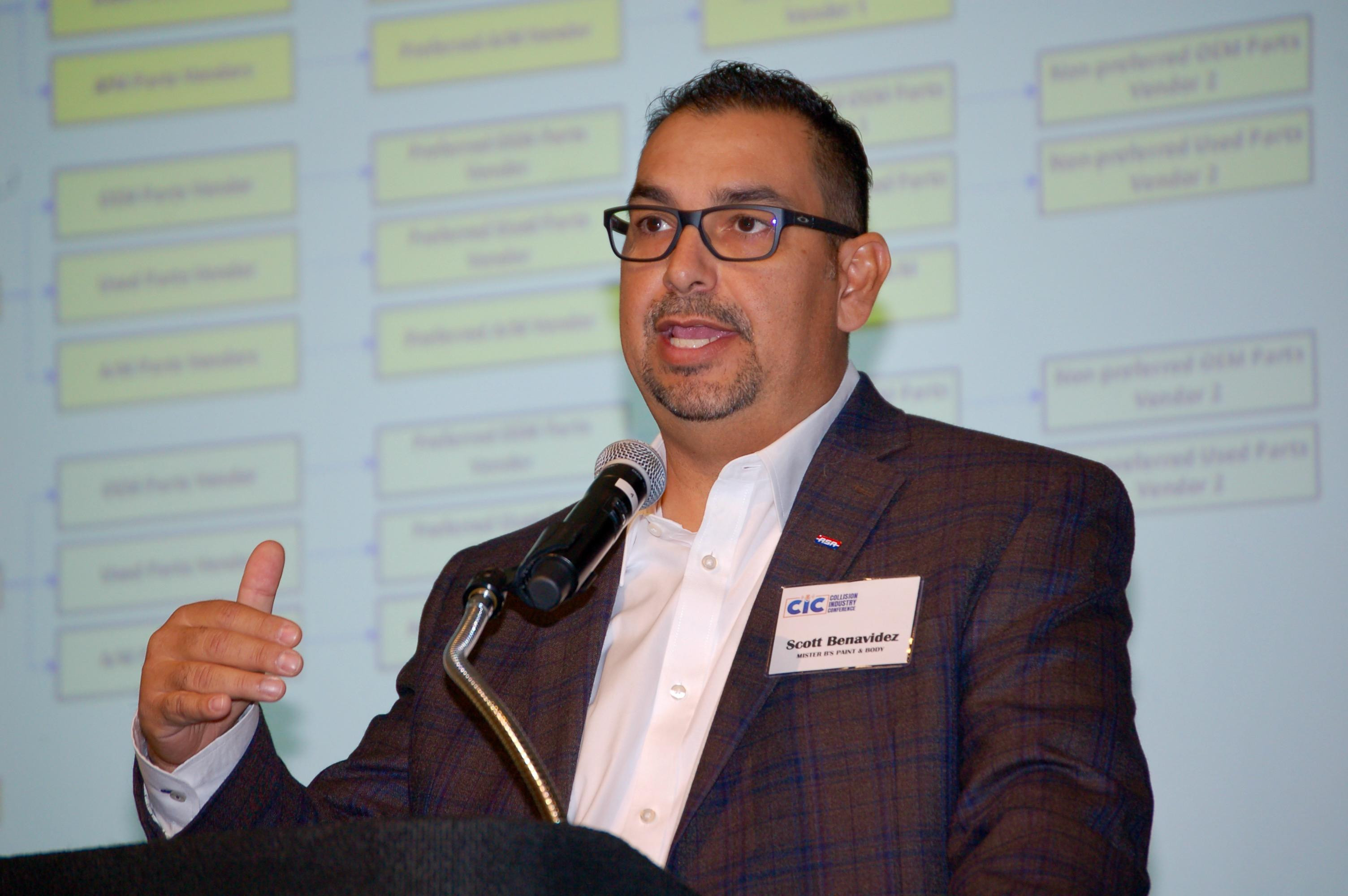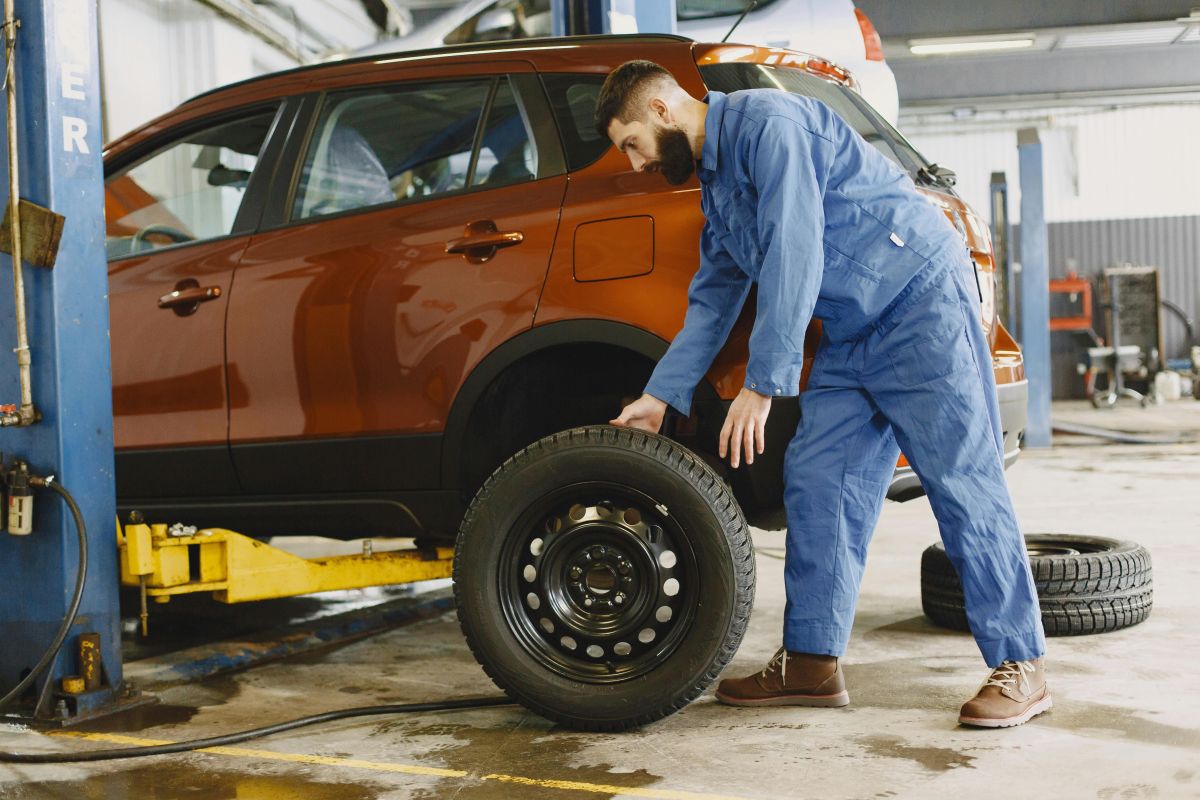Ask collision repair shop owners and managers where they currently are focusing added resources, and staffing is fairly consistently at the top of the list.
“I kind of feel like the shepherd protecting my flock most of the time to guard off poaching, making sure they’re not getting enticed to go elsewhere,” said Andrew Batenhorst, manager of Pacific BMW Collision Center in Glendale, CA.
Batenhorst noted that at least in his market, it’s not just other shops looking to attract workers.
“The city has jobs with pension programs and health benefits, and they are ramping up [recruiting] efforts as they’re losing a lot of the Baby Boomer generation who have been in those jobs for 40 years,” Batenhorst said. “They’re aggressively luring people in. So that’s kind of a new threat that we’ve not really seen in this market until the last year or two.”
Scott Benavidez, owner of Mister B’s Paint and Body in Albuquerque, NM, is also focused on challenges related to human resources. He helped get a basic collision repair training program launched this year at a high school near his shop.
 New Mexico shop owner Scott Benavidez is helping launch a program of basic collision repair training at a high school near his shop this year.
New Mexico shop owner Scott Benavidez is helping launch a program of basic collision repair training at a high school near his shop this year.
“We’ll be the first one in the nation to pilot I-CAR’s new program to start training people who may not have even touched a screwdriver,” Benavidez said. “We’re going to see how it works in my local high school here. If we can start them out from the ninth grade to the 12th grade, by the time they get out, they’re going to be beneficial to us. There’s five basic things we want them to learn: Small dent repair, R&I bolted-parts, plastic repair, prep paint and color sand and rub. If one of those kids came in my shop today with that, I’d hire them immediately.”
Benavidez said CCC Intelligent Solutions is putting an estimating system in the school to help students start learning about estimates and parts tracking.
“The Automotive Management Institute is going to do classes for these kids in how to answer the phone, how to talk to a consumer, how to see if vehicles are drivable from the get-go,” he said.
Benavidez said there’s a sizable student population in his area that are unlikely to go to college and want to begin earning right out of high school to help their families. “Hopefully this will help them and help our industry,” he said. “We’re trying to build a program where we move them in steps to get them ready to go into a shop by the time they are juniors and seniors, maybe even apprenticing during the summer. And then we can teach them the rest.”
Mentoring New Techs
Will Latuff, president of Latuff Brothers Auto Body in St. Paul, MN, is focusing on developing new technicians in-house.
“We have three employees who are new to us, two right out of trade school and one with little automotive experience, who we have paired up with mentor techs,” Latuff said. “We’re working on systematically increasing their skillsets so that they can become full-fledged techs. And then as we start growing those skills, we will bring on probably at least one more in the next year.”
One change that has made that more feasible to do: Latuff converted all his flat-rate technicians to hourly.
“There were more reasons behind that than just training, but that was one of the barriers to enabling a master tech to become a mentor,” Latuff said. “Because if a tech is dependent on what they produce, they’re not going to be focused on teaching new skills.”
One of the trainees, who is working at the shop while in his first year of trade school, didn’t have much in the way of tools, Latuff said, so the shop got him a basic set tools. “That’s not earth-breaking, but making sure he doesn’t have to borrow our mentor’s tools is kind of key,” he said.
Also necessary, Latuff said, is having a good plan. “A lot of people seem to think that the first thing somebody needs to learn is cosmetic dent repair, and it’s absolutely not. They need to learn organization, damage analysis, disassembly, reassembly, panel fitment.”
It’s also important to help guide the mentor techs through the process, he said. “They have a lot of knowledge but don’t always know how to translate that to a trainee,” he said. “You don’t get frustrated with a baby because they don’t know how to walk. It’s the exact same thing when you bring in new employees. The mentors need to know those trainees don’t know what they haven’t told them. And if you tell them once, they may not remember because they’re trying to absorb so much. So you may have to tell them again and again. You have to have that empathy or that heart to transfer the knowledge.”
Finding New Sources
Like Benavidez, Tom Ricci, owner of Body & Paint Center in Hudson, MA, is also working to increase the pool of potential entry-level technicians, but he’s looking beyond local schools. He’s trying to get an auto body program established as part of rehabilitation program at a correctional institute in his state.
“I’m involved in the program that’s working to get lower-level criminals back out in the workforce, helping them with re-entry,” Ricci said. “I’ve talked to a couple of people already in regards to trying to get an auto body training program up and running. If we get that off the ground, there’d be more resources for auto body technicians throughout the state.”















John Yoswick